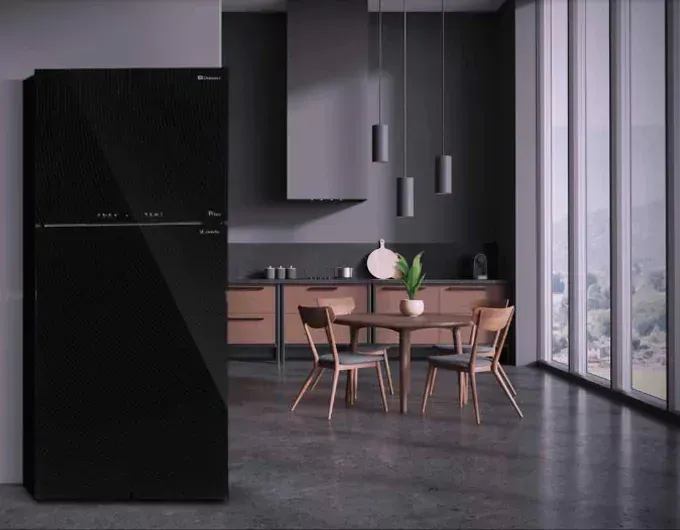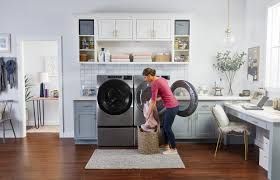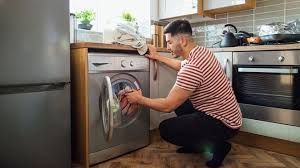Refrigerator Repair: How to Keep Your Fridge Cool and Functional
Your refrigerator is one of the most important appliances in your home, responsible for keeping your food fresh and safe to eat. However, like any appliance, refrigerators can encounter issues that affect their performance. From cooling problems to faulty seals and ice buildup, dealing with a malfunctioning fridge can be frustrating. In this comprehensive guide, we'll explore common refrigerator problems, their causes, and practical solutions to keep your fridge cool and functional.
Refrigerator Works:
Before diving into refrigerator repair, it's essential to understand the basic components and operation of your fridge. A refrigerator works by removing heat from the interior and dissipating it into the surrounding environment. Key components include the compressor, condenser coils, evaporator coils, and refrigerant. Familiarizing yourself with these components will help you diagnose and fix problems more effectively.
Common Problems and Causes:
Cooling Problems:
- Dirty condenser coils: Dust and debris can accumulate on the condenser coils, inhibiting heat dissipation and causing the refrigerator to run less efficiently.
- Faulty evaporator fan: The evaporator fan circulates cold air from the evaporator coils throughout the refrigerator. If the fan is not working properly, cold air may not be distributed evenly, leading to cooling issues.
- Damaged door seals: Cracked or torn door seals allow warm air to enter the refrigerator, causing temperature fluctuations and reduced cooling efficiency.
Ice Buildup:
- Blocked defrost drain: If the defrost drain is blocked by food particles or debris, water may accumulate in the bottom of the freezer and freeze, leading to ice buildup.
- Defective defrost heater: The defrost heater melts frost and ice buildup on the evaporator coils during the defrost cycle. If the heater is defective, ice may accumulate on the coils and cause cooling problems.
Noisy Operation:
- Worn evaporator fan motor: Over time, the bearings in the evaporator fan motor may wear out, causing the fan to make loud or unusual noises during operation.
- Faulty compressor: A malfunctioning compressor may produce loud noises, such as clicking, humming, or rattling, indicating internal mechanical issues.
Practical Solutions for Repair:
Cleaning Condenser Coils:
- Turn off the power to the refrigerator and locate the condenser coils, usually located on the back or bottom of the fridge.
- Use a vacuum cleaner with a brush attachment or a condenser coil brush to remove dust and debris from the coils.
- Clean the coils thoroughly to ensure proper heat dissipation and improve cooling efficiency.
Checking Evaporator Fan:
- Open the refrigerator door and locate the evaporator fan, usually located behind the back panel of the freezer compartment.
- Listen for the sound of the fan running during the cooling cycle. If the fan is not running, it may be defective and need to be replaced.
Inspecting Door Seals:
- Close the refrigerator door and inspect the door seals for any signs of damage or wear.
- Check for gaps or cracks in the seals that may allow warm air to enter the refrigerator.
- Replace damaged door seals to ensure a tight seal and prevent temperature fluctuations.
Defrosting the Freezer:
- Turn off the refrigerator and remove all food items from the freezer compartment.
- Allow the freezer to defrost naturally or use a hairdryer to speed up the process.
- Clean the interior of the freezer with warm, soapy water to remove any ice buildup and debris.
Preventative Maintenance Tips:
a. Regularly clean and maintain condenser coils to ensure efficient heat dissipation.
b. Check and replace door seals as needed to maintain a tight seal and prevent warm air infiltration.
c. Monitor the temperature settings and adjust as necessary to maintain optimal cooling performance.
d. Keep the refrigerator and freezer compartments well-organized to promote proper airflow and circulation.
When to Call a Professional:
While many refrigerator problems can be addressed with DIY repairs, some issues may require the expertise of a professional technician. Consider calling a professional if:
- The problem persists after attempting DIY repairs.
- The repair involves complex electrical components or requires specialized tools.
- You're unsure about the cause of the problem or how to fix it safely and effectively.
Maximizing Performance
In the realm of household appliances, few are as essential as the refrigerator. It serves as the silent guardian of our food, ensuring its freshness and safety. Yet, like any complex machinery, refrigerators are prone to issues that can disrupt their functionality and compromise food preservation. Understanding common problems and implementing practical solutions is key to maintaining optimal performance and extending the lifespan of this vital appliance.
From cooling malfunctions to ice buildup and noisy operation, there are various challenges that refrigerator owners may encounter. However, armed with knowledge and a proactive approach, these issues can often be addressed effectively. Simple tasks such as cleaning the coils, ensuring proper ventilation, and checking door seals can go a long way in preventing problems before they escalate.
Safety should always be a top priority when attempting any DIY repairs. While many maintenance tasks can be tackled independently, more complex issues may require the expertise of a professional technician. Don't hesitate to seek assistance when needed, as attempting to fix intricate problems without the necessary skills and knowledge can lead to further damage or even safety hazards.
Beyond the realm of repairs, there's also a broader consideration for sustainability. Optimizing your refrigerator's performance not only saves money on potential repairs but also contributes to a more environmentally friendly lifestyle. By reducing food waste through effective preservation and minimizing energy consumption, you're not only benefiting your own household but also making a positive impact on the planet.
In conclusion, maintaining your refrigerator isn't just about ensuring its functionality—it's about safeguarding your food, your finances, and the environment. By prioritizing regular maintenance, addressing issues promptly, and embracing sustainable practices, you can maximize the lifespan of your refrigerator and enjoy efficient cooling for years to come. So, roll up your sleeves, take care of your appliance, and savor the peace of mind that comes with a well-maintained refrigerator.




